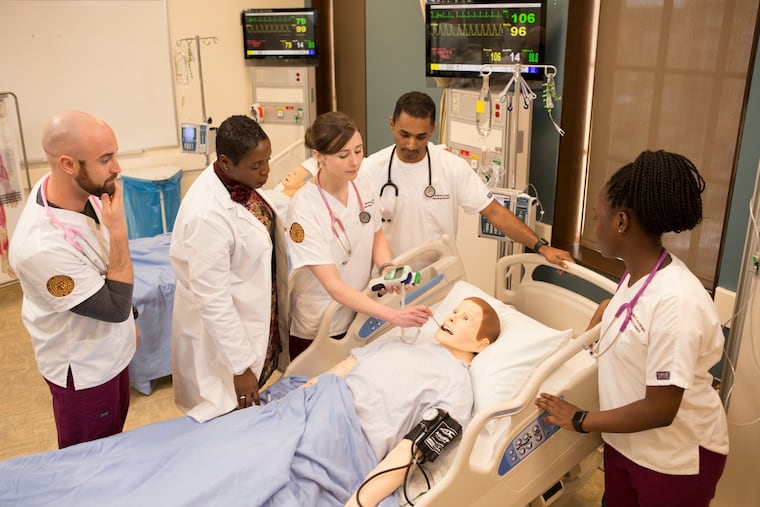These ‘poverty buster’ degrees offer high incomes, low college loan debt | Does that Degree Pay?
A new Inquirer search tool makes it easy to find degrees earning more than $40,000 and with debt of less than $10,000. That’s the kind of investment that can “help boost people into the middle class,” one expert said.

What can you study at college that lands you a well-paying job after graduation with little debt?
The Inquirer’s new tool can help find those degrees.
Here’s a list of some of those majors in the tri-state area, dubbed “poverty buster” degrees, using new Department of Education and IRS data.
It’s not surprising that community colleges such as Delaware County Community College and Delaware Technical scored high on the list, as did Thaddeus Stevens College of Technology in Lancaster and Thomas Edison State University in Trenton.
Prison and other correctional institute program graduates can earn north of $42,000 a year out of Delaware County Community College, and leave school with less than $6,000 in loans. Graduates from Lackawanna College’s undergraduate certificate program in criminal justice earn $45,400 median incomes and must pay off just more than $6,400 of school loan debt.
Thomas Edison has at least three programs that pushed graduates out of poverty and into the middle class.
The Inquirer tool helps break down the data on those degrees earning more than $40,000 and with debt of less than $10,000.
“This is really a list that shows which degrees help boost people into the middle class,” said Temple professor Douglas Webber, who teaches about the economics of education. “In general, I’m a big fan of this type of data. It is long overdue.
“To have this kind of information available at the school-by-degree level is helpful. Just because a given major is high-earning doesn’t mean it will be at every school. Having this broken down is so important.”
Webber would like to see the same data for all graduates, including those with private loans. “That would greatly increase the sample size, but it’s a massive improvement over what we had before,” he said.
Thomas Edison, for example, attracts mostly adult learners who sign up for classes online, according to university president Merodie Hancock.
“Roughly 98% of our students are adults based on the average of the last three years.” she said, defining adults as over age 21 years.
Many Edison students are already firmly in the workforce and require a degree for a promotion.
“The vast majority come to us employed, but underemployed. They’re very serious students. They’re older and their time is valuable,” Hancock said.
As for keeping student debt low, “a lot of adult students come to us having already accumulated debt. So we’re a unique business. Most institutions work on trying to increase tuition. We work with students on taking fewer classes. It’s a tough business model. But, I tell our legislators, ‘this is our mission. We’re driving away sales in the best interest of our students.'"